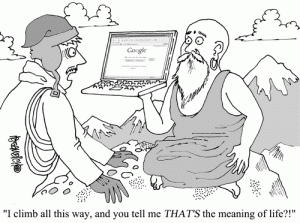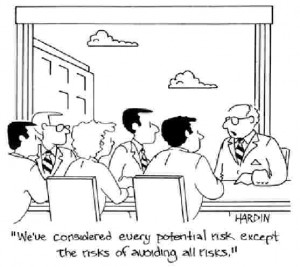- September 22, 2008
- Posted by: admin
- Categories: Blog, Search Marketing
Imagine an advertising medium that can penetrate a massive 15 percent of total world population globally. Ideally, the associated costs for such an endeavor would be a death trap for any organization. Surprisingly, the early nineties saw the rise of a ‘Pentagon-scrapped’ technology, now free for all to use and abuse; something that belongs to everyone, and yet no one- the Worldwide Web. As of today, this phenomenon has penetrated into the lives of 1,463,632,361 people*, and they actually PAY for its access.
Though initially considered a ‘lop sided’ concept, the Worldwide Web (popularly termed ‘internet’, though both are theoretically separate concepts) became an indispensible part of our everyday lives. Its FFA (free for all) nature made it an ideal advertisement/marketing medium. But like all other things in life that are FFA, it slowly transited from being an effective, useful and indispensible amenity, to a cluttered, disorganized, virus ridden, unmanageable broth that contains everything, without a clue on where to find anything.
As necessity is the mother of all ‘useful’ inventions, the need for finding gold in a garbage heap gave rise to metal detectors; Web Directories, Listings, forums, communities, and most important of all, search engines. Initially the most popular web listing/search engine hybrid was Yahoo (first commercial search engine was excite, 1993). But it slowly lost its appeal, and the internet was taken over by another being from space.
The Meaning of Life
Amongst all the dotcom bombs that have graced our presence on this planet, Google has always stayed in the spotlight. The hungriest of search engines, this single box search page has revolutionized internet usage, defining the very culture of Internet presence and activity. If it’s hard for you to imagine an FFA marketing channel, then picture this: this simple page hits 15% of the world population for FREE, and it tells them where to go. There is no greater marketer in human history than this one click page.
Dotcom Galore – The Risks of not taking Risks
Mankind has the innate ability to create the very best out of necessity, and then misuse and abuse them ‘exhaustively’ once we start taking them for granted. There is no rocket science to the fact that most dotcom business models fell on their faces, FLAT, owing to their airy-fairy and impractical nature. When something is made free for everyone, it tends to become more of a menace in terms of the competition it spurs, rather than being an asset. The ‘Risk-Free’ nature of the internet marketing endeavor made it extremely popular amongst all business spheres.
Most people blame the dotcom failure on marketing mismanagement and the search marketing approach itself. Some SEOs blame the ever changing algorithms of Search engine spiders.
 However, it is imperative to mention that these very changes protect the sanctity and effectiveness of the system, as those looking to take advantage of the system are continuously trying to find out workarounds to improve their rankings overnight.
However, it is imperative to mention that these very changes protect the sanctity and effectiveness of the system, as those looking to take advantage of the system are continuously trying to find out workarounds to improve their rankings overnight.PPC is also dragged into the discussion. In fact, most of the controversy surrounds pay per click engines, as they caused the most collateral damage in the dotcom demise, with organizations getting advertisement PPC costs amounting to millions of USD within 12 hour sessions, selling nothing but a failing image of an over-advertised product.
Back to the Drawing Board
A wise man once said, ‘You need to know where you come from, to know where you’re going’. Similarly, the base reason for failures and controversies surrounding search marketing was the lack of in-depth business analysis by most search marketing services. Before search marketing any business, one needs to know the business better than search marketing itself. 
Once that is done, a very specific approach is required, in terms of segregation of targeted search terms for attracting relevant web traffic to your site. Moderate, but relevant web traffic is far better than humongous site visit counts, and high visitor exit rates. After careful consideration, many strategies were adopted one after another, using data statistics from dotcom giants that fell in the years past.
Methods to Madness
 Another widely observed phenomenon was the social networking concept (this was fuelled to a great extent by blogs). People began connecting with each other over common interests, leading to fruitful, mutually beneficial associations and groups, business, politics, current issues or otherwise. As of today, social networking has penetrated into e-business, thereby materializing ‘business relationships’ and open, FFA forums for such ventures. Some of the most successful brands in this field are Alibaba, Linkedin, Xing, Elance, Ebay and a host of other web portals, which place e-business opportunities at your fingertips.With new social networking and business relationship portals emerging, this new breed of concepts (termed ‘Web 2.0’) has redefined the potential of E business and search marketing worldwide. Affiliate networks and social networks are no longer separate entities; you can make money and make friends at the same time.
Another widely observed phenomenon was the social networking concept (this was fuelled to a great extent by blogs). People began connecting with each other over common interests, leading to fruitful, mutually beneficial associations and groups, business, politics, current issues or otherwise. As of today, social networking has penetrated into e-business, thereby materializing ‘business relationships’ and open, FFA forums for such ventures. Some of the most successful brands in this field are Alibaba, Linkedin, Xing, Elance, Ebay and a host of other web portals, which place e-business opportunities at your fingertips.With new social networking and business relationship portals emerging, this new breed of concepts (termed ‘Web 2.0’) has redefined the potential of E business and search marketing worldwide. Affiliate networks and social networks are no longer separate entities; you can make money and make friends at the same time.*stats obtained from www.internetworldstats.com
5 Comments
Comments are closed.

There’s probably four reasons why companies are avoiding search marketing:
Measurement: Unfortunately PPC is *too* measureable and does not have the same “brand building” premium as other advertising mechanisms do.
Targeting:
The web demographic does not target certain markets very well. Additionally products without a specific “use” but are more geared towards lifestyle (i.e. no one looks up “refreshment”) will not have a lot of search penetration.
Scalability:
Seach marketing is based on the presenting of information in response to a query. Certain advertising driven products (gambling, life insurance, soft drinks) are not likely to have a great deal of success in search due to the number of results relative to queries.
Channel Limitation:
Online can only deliver so much to many industries.
The dotcom bubble burst was due to the fact that companies spent so much trying to build a market for their products. If they had managed their cash and waited until the markets organically evolved, many would still be around today. The main culprit was not search marketing, but more overspend in traditional advertising venues as well as poorly negotiated partnerships with established portals.
I don’t think that “most companies” refrain from using SEO / SEM or that “farce” is a word that can fairly be leveled at the industry. It’s use does illustrate how many misconceptions exist about the industry.
The fact that SEM / SEO represents a “pull” medium rather than the traditional “push” of collateral, radio, tv et al makes prospects nervous. I’ve several clients who insist that the word “luxury” should be included in optimized search phrases when the analytics prove that few are searching with that term probably because it means paying more rather than less. The word “luxury” may have value in push media but not pull. This difference can be off-putting.
Prospects sometime demand sales rather than simply increased traffic. Marketing of any sort can only increase leads. The actual sales effort is accomplished by the website and the company’s sales procedure. Please note that people cannot be “pushed” to buy. They will buy whatever suits their needs. This is a “pull” concept that remains unclear to many sales teams. Many SEM firms only run ads and never optimize the targeted landing pages whatsoever. This is a complete misfire when handing off the results of marketing to the sales presentation on the website. I strongly suggest Bob Lambert and Dan Kreutzer at Samurai for their perspective on sales/buying.
The time lag for effective SEO also make prospects nervous. No matter what signposts one provides the client wants to see instant organic first page SERP at Google and nothing else will do. This does foster uncertainty that only a proven track record can assuage. In any marketing relationship trust must be earned. If for some reason trust is not earned it still doesn’t mean that search marketing is a farce only that the practitioner was not trustworthy.
Links:
http://SearchEngineMarketingChicago.com
I have to agree with Chris that search marketing was not the culprit that caused the dotcom bubble to burst. The main failure was the poor strategy and execution. Plus, most of them didn’t really have any substantial way of making money. Investors threw money at the dotcom companies based on ideas and promises. When the VCs realized they were not getting returns for their investment. The money dried up.
Unfortunately, since SEM is a relatively new industry and because it isn’t as straight forward as traditional advertising in the sense that you pay for an ad in GQ magazine and you see it next month. Or you pay to have 3 months worth of ads in the magazine and they are there every month. Yes, with SEO there is a time lag for results and many people don’t understand this. People expect immediate results. Plus, they don’t understand that search is not a once and done deal. It is something that needs to at least be periodically monitored, because of changes in competition, trends and the all mighty algorithms.
I work with small to medium size businesses and the biggest thing that I see holding companies back from entering this medium is education. They just don’t understand how it works and fear the unknown. It is easier for them to do the old tried and true.
Search marketing can be an effective tool for a well-defined target market with exact characteristics. Hence ROI and scalibility are quite measurable and worth the investment.
Throught the use of SEO methods, such as:
Ad serving
Click-through rate
Compensation methods
Cost per action
Cost per click
Cost per impression
Cost per mille
Cost per thousand
Effective cost per action
Effective cost per mille
Pay for placement
Performance-based advertising
Cost Per Engagement
a company can get an excellent ROI on its investment in Search Marketing.
Also geographically knowing which engine to use is essential:
Google – global
Yahoo! – global
Microsoft Live – global
Ask.com – global
Baidu – China
Yandex – Russia
Rambler – Russia
Timway – Hong Kong
to name as a few examples.
There’s probably four reasons why companies are avoiding search marketing:
Measurement: Unfortunately PPC is *too* measureable and does not have the same “brand building” premium as other advertising mechanisms do.
Targeting:
The web demographic does not target certain markets very well. Additionally products without a specific “use” but are more geared towards lifestyle (i.e. no one looks up “refreshment”) will not have a lot of search penetration.
Scalability:
Seach marketing is based on the presenting of information in response to a query. Certain advertising driven products (gambling, life insurance, soft drinks) are not likely to have a great deal of success in search due to the number of results relative to queries.
Channel Limitation:
Online can only deliver so much to many industries.
The dotcom bubble burst was due to the fact that companies spent so much trying to build a market for their products. If they had managed their cash and waited until the markets organically evolved, many would still be around today. The main culprit was not search marketing, but more overspend in traditional advertising venues as well as poorly negotiated partnerships with established portals.